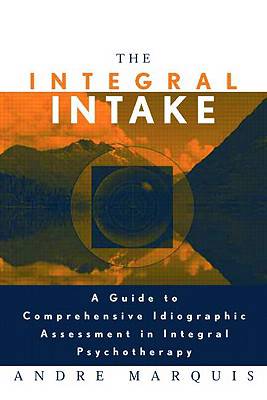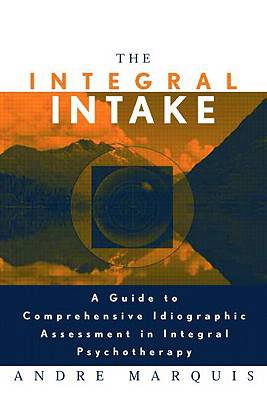
- Retrait gratuit dans votre magasin Club
- 7.000.000 titres dans notre catalogue
- Payer en toute sécurité
- Toujours un magasin près de chez vous
- Retrait gratuit dans votre magasin Club
- 7.000.0000 titres dans notre catalogue
- Payer en toute sécurité
- Toujours un magasin près de chez vous
The Integral Intake
A Guide to Comprehensive Idiographic Assessment in Integral Psychotherapy
Andre Marquis
Livre broché | Anglais
83,95 €
+ 167 points
Format
Description
The Integral Intake is a thorough yet efficient assessment instrument developed by Andre Marquis and based upon Ken Wilber's Integral Theory. The goal of this comprehensive intake form is to provide the practitioner with a wealth of background information about clients as early as possible in the course of therapy. The intake form not
Spécifications
Parties prenantes
- Auteur(s) :
- Editeur:
Contenu
- Nombre de pages :
- 318
- Langue:
- Anglais
Caractéristiques
- EAN:
- 9780415957663
- Date de parution :
- 01-12-07
- Format:
- Livre broché
- Format numérique:
- Trade paperback (VS)
- Dimensions :
- 150 mm x 229 mm
- Poids :
- 476 g

Les avis
Nous publions uniquement les avis qui respectent les conditions requises. Consultez nos conditions pour les avis.






